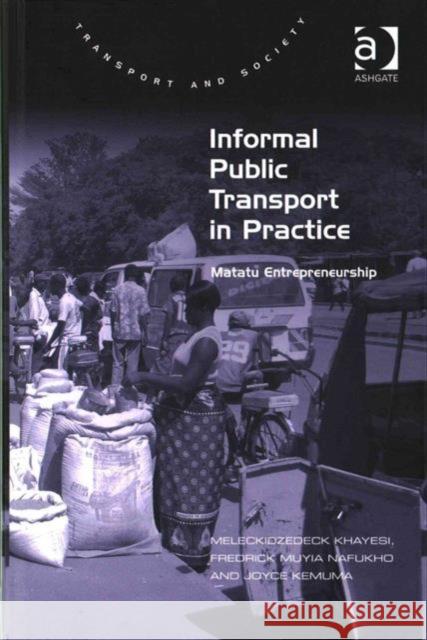Informal Public Transport in Practice: Matatu Entrepreneurship » książka
Informal Public Transport in Practice: Matatu Entrepreneurship
ISBN-13: 9781409446927 / Angielski / Twarda / 2015 / 164 str.
Transport discourse often concentrates on what is missing from transport policy and practice in developing countries vis-A -vis high-income countries rather than articulating local creativity in responding to transport needs as revealed in informal public transport modes such as matatu, motorcycle, bicycle and animal transport. This book helps to correct some of the tendency of inadequate contextualization of knowledge, technology and practice learning and transfer from one setting to another in transport and other development programmes. While countries such as Kenya have ambitions to develop their transport systems to fit into the globalized transport system, they also need to plan transport for ordinary life in both urban and rural areas. The matatu service, provided by privately-owned transport carriers, can be seen as a mirror of the life of Kenya, revealing how indigenous African entrepreneurship and capitalism straddles various economic, political and social systems. This book offers a phenomenological and situated analysis of the matatu entrepreneurship in the political economy of Kenya and its embeddedness in society. By adopting a social science approach, this book highlights a number of political, social and practical issues to demonstrate the matatu is not a decontextualized, disembodied and lifeless piece of moving metal carrying people and goods but rather part of a self-organizing industry, with its own logic of practice. This book is dedicated to Ajanga Khayesi.











